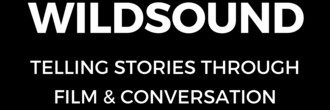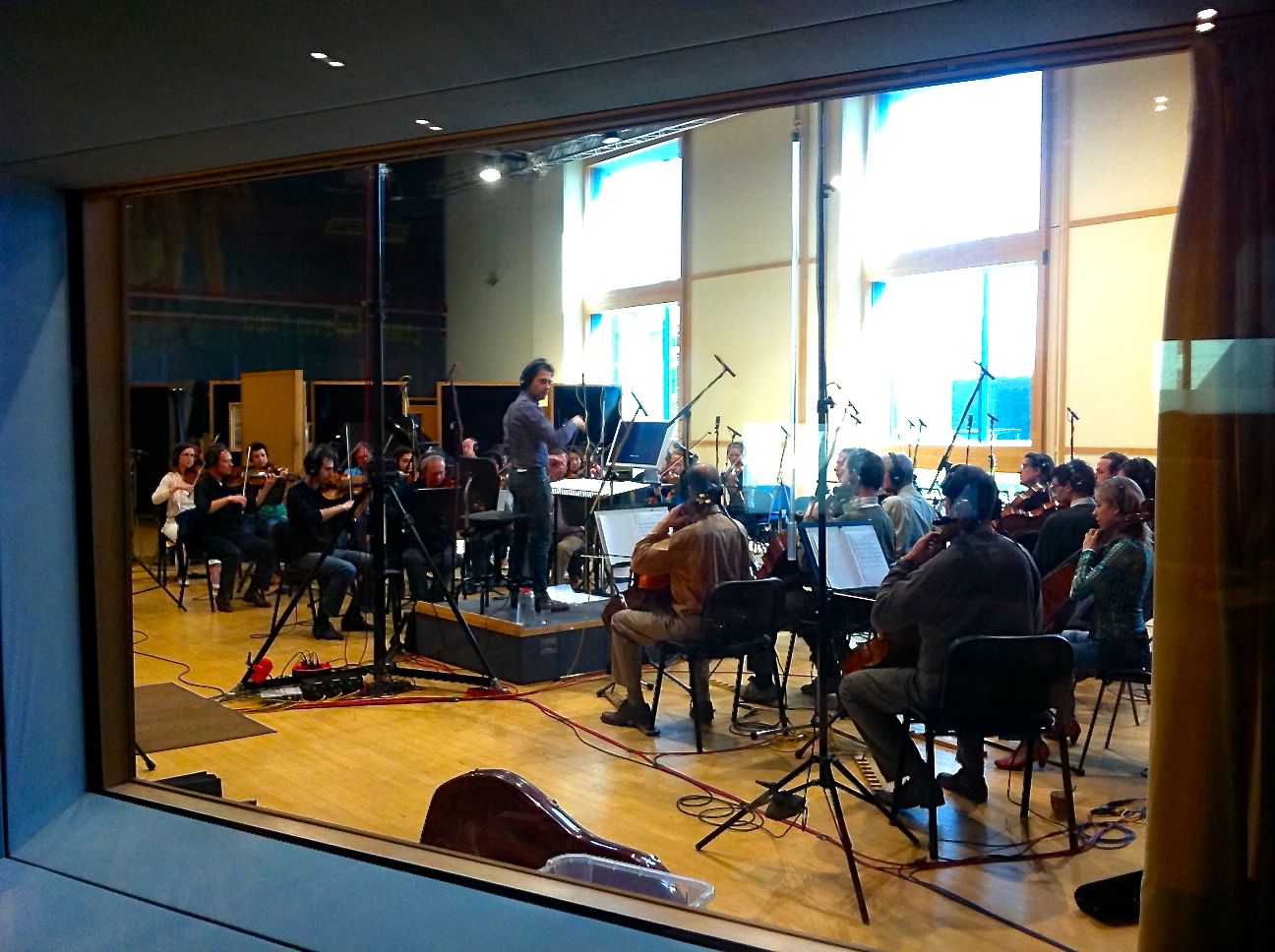Michelino has composed the soundtracks for multiple feature films, working with such renowned orchestras as the Brussels Philharmonic and Limburgs Symfonisch Orkest. In 2014, Michelino Bisceglia won the World Soundtrack, Public Choice Award for the score of “Marina”, a film by veteran Belgian director Stijn Connix. It was an honor chatting with him:
Matthew Toffolo: Where were you born and raised? Was music something you always wanted to do as your career?
Michelino Bisceglia: I was born in Genk, a little town in Belgium to a family of Italian origin. I still live in Belgium and have my studio in Brussels. As a child I have been surrounded through my brother by many great musicians and had the chance to get in contact with different genres of music. To be a musician was a natural call and it felt like it was the piano that picked me to play as my instrument! The first melody I was playing on a toy keyboard at age of 6 was “Il Padrino” the main theme of The Godfather by Nino Rota. At that time I didn’t knew it was music by one of the greatest legend composer. I realized years later when I was started working as a composer and musician.
What has been your most proudest work of your career? Or, what has been your favorite project?
One of my favorite project was the soundtrack for the successful film “Marina” (2013) directed by a veteran Belgian (oscar nominee) director Stijn Coninx. A story based on the childhood memories of world famous Italian singer, songwriter and accordionist Rocco Granata. I was very honored to receive for this music the World Soundtrack Award for Public Choice in 2014.
Another project I’m very proud of is my first Oboe Concert I’ve recorded and conducted last year with The Brussels Chamber Orchestra and the fabulous soloist Piet Van Bockstal on oboe. I very much look forward to the release of this album called “Orchestral Works 1” including some choral music I had composed to the film “Blue Bird” (directed by Gust Van Den Berghe) in 2011.
Tell us about your working relationship with director Andrea Pallaoro on the film Hannah?
Initially I was asked by the producer John Engel if I was interested to compose a pitch based on the script, which I did. Andrea loved very much the melodic development and really believed I was the right composer for this film. I also enjoyed very much his open mind on my proposals to consider the use and function of music on a different way. For example to use of a solo cello on an urban dance scene in a Brussels subway.
We met a few times in Brussels to talk about the music. Andrea had a strong idea of the music and how it would work best for his film. He didn’t change his idea during the whole process but at the same time he gave me all the freedom to try things out. So we both had a very comfortable work flow.
What are you generally looking for in a director in terms of guidance and tone for your music?
The hardest thing for a director I believe is to explain to a composer about his idea on the music he wants. There are so many different approaches and this is not easy, even for composers it is very difficult to describe in words how music sounds like. When it comes to the point, I generally try to have the director describe his idea of the music as simple as possible. Sometimes the use of single keywords can say much more than long conversations.
Also I had some experience with directors that approached me like if I (representing the music) was a ‘character’ in the film. This was a very interesting way of working and very effective to guide me throughout the process.
To develop the tone of the music I mostly start to compose several sketches as soon as possible in the production. The feedback of the director on these sketches helps me a lot to understand his taste and what he has in mind in terms of music and sound.
What do you think a producer/director is looking for when they bring on their composer to score the film?
First of all you have to be very reliable in terms of deadlines and the agreements. You don’t wan’t to have a situation where you screw the post-production process because of your bad time management. This is extremely important.
Producers and directors certainly are looking for music to complete the design of the story and to develop the relief the emotion on their film. It is like trying to find the right frame for a painting. Of course the are looking to have the best music they could imagine. But also the composer likes to compose the best music he ever made. Although it is hard to make that come together. I believe to get there, there is another level that counts and has noting to do with music. It has to do with the relation between people within a short period of time: There must be trust, faith and space of freedom for the intuition to make things happen.
What is your passion in life besides music?
I’m passionated to read about astrophysics and all that has to do with quantum physics. Two fascinating phenomena we live in every day: the biggest and the smallest!
I’m also very interested in refine restaurants and try some fine cuisine out by myself when I have some time.
What movie have you watched the most times in your life?
In fact I don’t really like to watch movie’s once I’ve seen it. But there are some that I have watched several times like: Alien 3, Edwards Scissorhands, The Adventures of Tintin “The Secret of the Unicorn”…
What advice do you have for young musicians who would eventually like to compose movies for a living?
1. Compose and develop your own music, with your own style and approach. Don’t try to sound like someone else, he will always be better then you.
2. Composing a soundtrack for film is still composing music. The music without the film must have it’s highest value in all terms: Well played, well sounding, well written, well produced and interesting to listen to!
3. If you want to compose for your living you have to develop some management skills for yourself. If you wanne be part of the business you have to learn the do’s and don’ts !

_____
Interviewer Matthew Toffolo is currently the CEO of the WILDsound FEEDBACK Film & Writing Festival. The festival that showcases 20-50 screenplay and story readings performed by professional actors every single month. And the FEEDBACK Monthly Festival held in downtown Toronto, and Los Angeles at least 3 times a month. Go to http://www.wildsoundfestival.com for more information and to submit your work to the festival.


Reblogged this on WILDsound Writing and Film Festival Review.
LikeLike
Reblogged this on Comedy FESTIVAL.
LikeLike
Reblogged this on Festival for HORROR.
LikeLike
Reblogged this on Los Angeles feedback film festival.
LikeLike
Reblogged this on WILDsound Writing and Film Festival Review.
LikeLike
Reblogged this on WILDsound Writing and Film Festival Review.
LikeLike
Reblogged this on WILDsound Writing and Film Festival Review.
LikeLike
Reblogged this on Under 5 minute film festival.
LikeLike
Reblogged this on Action/Adventure Film & Screenplay Festival.
LikeLike
Reblogged this on WILDsound Writing and Film Festival Review.
LikeLike